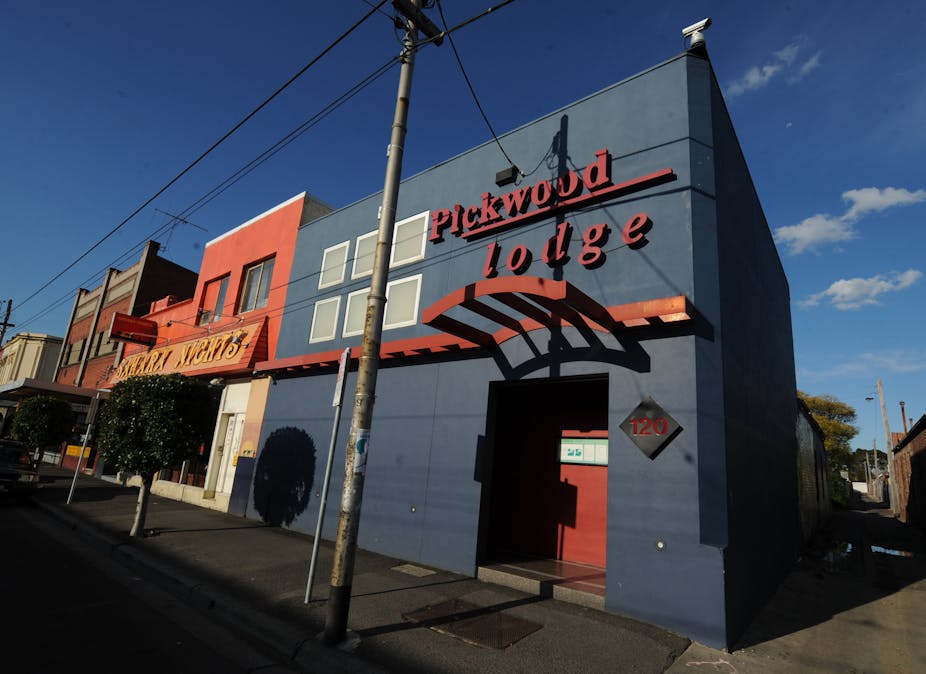France is the latest European country to aim for a “society without prostitution”. The proposal to make it a crime to purchase any sexual service (alongside Sweden, Norway and Iceland) has stimulated public debate regarding the most appropriate legal framework for responding to prostitution.
In Australia, laws governing prostitution vary across the states and territories. From complete decriminalisation (New South Wales), to licensing and regulation of legal brothels (Victoria, Queensland, Australian Capital Territory), to allowing private and escort services but not brothels or street work (Northern Territory and Tasmania), to a primarily criminal approach (South Australia and Western Australia). Given this range of legal experiments affecting the lives of (primarily) women in the sex industry in Australia, it is also time to re-open the prostitution debate here.
In fact, in recent months, Tasmania, South Australia, Western Australia and the Australian Capital Territory have all reviewed their prostitution laws. The tensions in the media debates around this have been largely predictable and reflect those currently going on in France and elsewhere.
All sides of the debate
First, there are the advocates of the Swedish model who aim to eventually eradicate prostitution, by criminalising its purchase, because they view it as a form of exploitation of women.
Then there are the sex worker lobby/advocates who want the same legal status, and associated benefits (such as occupational health and safety protections) for sex work equal to any other legal work.
Finally, there are the conservative right who want prostitution banned because they view it as morally wrong.
We cannot hope to resolve the underlying ideological differences in these widely held views. But we can listen to women in the sex industry, and put their voices and the diversity of all their experiences central to the debate.
Help and harm
Research with women suggests that their experiences of the sex industry are diverse and complex. Many report positive aspects of sex work, describing the flexibility of hours and the profitability as more rewarding than other work.
Many others report experiences of harm including physical and sexual violence, stalking, verbal abuse and health concerns. Not to mention the countless damage done to women in the sex industry due to discrimination, stigma, and hate crime.
Meanwhile police and immigration raids demonstrate that some legal brothels in Victoria, New South Wales, and Queensland remain sites for the sex trafficking of women and girls; for which there is evidently a high demand.
Putting women in charge
So what might be some potential points of agreement from which to progress the current stalemate in the debate?
A productive place to begin is immediately increasing funding for programs to support those women who do want to leave the sex industry. Many countries internationally fund exit programs and support for women (including the UK, US, Sweden, Norway, Iceland, and South Korea to name a few). Australia meanwhile has barely a handful of poorly funded, primarily volunteer-based, programs.
In Victoria, programs such as Project Respect operate on shoestring budgets with a succession of small one-off program grants and no ongoing government funding. There is also no legal requirement for brothels to allow support workers access, making it difficult for them to reach women.
Supporting the work of these programs, laws should ensure that women are not further marginalised for working in the sex industry. Decriminalising the selling of their own sexual services would be an important step. As would implementing spent conviction schemes (that remove the criminal record of past prostitution related offences). Such reforms remove the barriers for those women who want to leave the industry, and encourage women who are trafficked or experience violence to report it.
Women should have greater control over their earnings and the conditions in which sexual services are provided. Even in legal brothels, some women are pressured to offer clients unprotected sex “for the right price”. Women do not always have the choice to refuse particular clients or sex acts. Brothel owners typically get 40-60% of the fee charged for a sexual service, and in Victoria women hold less than 10% of brothel licenses.
Learning from experience
It has been almost 30 years since the Neave Inquiry into prostitution recommended strategies to improve women’s control over their working conditions. Yet several key recommendations have never been implemented.
Meanwhile street prostitution, which is the most dangerous for women and places them at greatest risk of physical and sexual violence, could be more effectively discouraged. This could be done by making the purchasing of street sex illegal. A variation of the Swedish model that would still avoid penalising individual women.
We will likely continue to debate the ideological underpinnings of various legal approaches to prostitution in Australia. But in the meantime we must learn from women’s diverse experiences of the sex industry and take immediate steps towards more consistent and safer laws.

